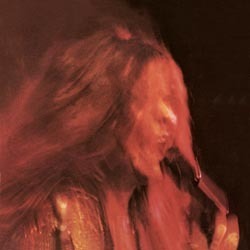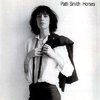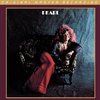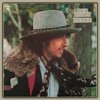AAA 100% Analogue This LP was Remastered using Pure Analogue Components Only from the Master Tapes through to the Cutting Head
Speakers Corner / Columbia - CS 9913 - 180 Gram Virgin Vinyl - AAA 100% Analogue
AAA 100% Analogue - Mastered by Maarten De Boer at Emil Berliner
Pressed at Pallas in Germany - Columbia KCS 9913
Speakers Corner 30 Years Pure Analogue This LP is an Entirely Analogue Production
The Absolute Sound Super Disc List TAS Harry Pearson Super LP List
Speakers Corner Records has done an excellent job ion re-mastering I Got Dem Ol’ Cosmic Blues Again Mama! to180-gram vinyl. The mix is focused on Joplin’s powerhouse voice, and it works perfectly. Although her posthumous follow up release would become a significant hit, this album enjoyed her full participation. Janis Joplin was one of a kind -Audiophile
The pressing is quiet down into the grooves, and there is good definition of everything musical. Kozmic Blues has never beendemo material, but here it shows off analog's ease, especially in comparison to the uptight digital sound of the remastered CD, - Soundstage Review
When Janis Joplin died in October 1970 at t he early age of 27, thus involuntarily confirming the beatnik adage "live fast, love hard, die young," it was only a matter of time before she was crowned the "Queen of Rock." Of greater importance than this posthumous entry into rock 'n' roll's hall of fame is the recognition during her lifetime of her explosive vocal style, which – so Vogue – "turned the whole history of singing upside down
." Joplin's discography is just as short and changeable as her life. After two LP releases with the standard "cast" of rock musicians in the band Big Brother And The Holding Company, with whose excellent musical support she obtained her first recording contract with Columbia Records in 1968, the company provided her with a group augmented with organ and winds.
For those Woodstock fans whose ears are still ringing with the band's full, meaty wind sound and Janis' bluesy soul singing, this album is an absolute must.
When Janis Joplin died in October 1970 at t he early age of 27, thus involuntarily confirming the beatnik adage "live fast, love hard, die young," it was only a matter of time before she was crowned the "Queen of Rock." Of greater importance than this posthumous entry into rock 'n' roll's hall of fame is the recognition during her lifetime of her explosive vocal style, which – so Vogue – "turned the whole history of singing upside down." Joplin's discography is just as short and changeable as her life. After two LP releases with the standard "cast" of rock musicians in the band Big Brother And The Holding Company, with whose excellent musical support she obtained her first recording contract with Columbia Records in 1968, the company provided her with a group augmented with organ and winds. For those Woodstock fans whose ears are still ringing with the band's full, meaty wind sound and Janis' bluesy soul singing, this album is an absolute must.
This underrated 1969 recording was Janis Joplin's first solo studio album after she left Big Brother & the Holding Company. One objection at the time of its release centered on the horn section, which Big Brother loyalists were determined to hate to death. Moreover, the aggregate of musicians backing Joplin — she named the band Kozmic Blues — never solidified as a group, even after earning a warm response on a European tour that spring. There was considerable turnover among the players pulled in for the sessions and considerable discontent as well. Producer Gabriel Mekler would have gladly dumped the band entirely. The best tracks on the album resulted from a single session in June 1969: a supremely delivered rendition of "One Good Man" (with the great Mike Bloomfield on guitar), and, above all, "Little Girl Blue." The Rodgers and Hart estates, however, absolutely loathed Joplin's version of the song, as did a gaggle of older musicians. Joplin changed the words somewhat and made a magnificent tearjerker out of a song that was first performed by Doris Day.
Musicians:
Janis Joplin, vocals
Sam Andrew, guitar, backing vocals
Richard Kermode, organ
Gabriel Mekler, organ
Brad Campbell, bass
Maury Baker, drums
Lonnie Castille, drums
Cornelius "Snooky" Flowers, baritone sax, backing vocals
Terry Clements, tenor sax
Luis Gasca, trumpet
The pressing is quiet down into the grooves, and there is good definition of everything musical. Kozmic Blues has never beendemo material, but here it shows off analog's ease, especially in comparison to the uptight digital sound of the remastered CD, - Soundstage Review
1. Try (Just A Little Bit Harder)
2. Maybe
3. One Good Man
4. As Good As You've Been To This World
5. To Love Somebody
6. Kozmic Blues
7. Little Girl Blue
8. Work Me, Lord
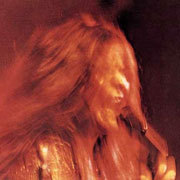
25 Years pure Analogue
Are your records completely analogue?
Yes! This we guarantee!
As a matter of principle, only analogue masters are used, and the necessary cutting delay is also analogue. All our cutting engineers use only Neumann cutting consoles, and these too are analogue. The only exception is where a recording has been made – either partly or entirely – using digital technology, but we do not have such items in our catalogue at the present time
Are your records cut from the original masters?
In our re-releases it is our aim to faithfully reproduce the original intentions of the musicians and recording engineers which, however, could not be realised at the time due to technical limitations. Faithfulness to the original is our top priority, not the interpretation of the original: there is no such thing as a “Speakers Corner Sound”. Naturally, the best results are obtained when the original master is used. Therefore we always try to locate these and use them for cutting. Should this not be possible, – because the original tape is defective or has disappeared, for example – we do accept a first-generation copy. But this remains an absolute exception for us.
Who cuts the records?
In order to obtain the most faithful reproduction of the original, we have the lacquers cut on the spot, by engineers who, on the whole, have been dealing with such tapes for many years. Some are even cut by the very same engineer who cut the original lacquers of the first release. Over the years the following engineers have been and still are working for us: Tony Hawkins, Willem Makkee, Kevin Gray, Maarten de Boer, Scott Hull, and Ray Staff, to name but a few.
At the beginning of the ‘90s, in the early days of audiophile vinyl re-releases, the reissue policy was fairly straightforward. Companies such as DCC Compact Classics, Mobile Fidelity, Classic Records and others, including of course Speakers Corner, all maintained a mutual, unwritten code of ethics: we would manufacture records sourced only from analogue tapes.
Vinyl’s newfound popularity has led many other companies to jump on the bandwagon in the hope of securing a corner of the market. Very often they are not so ethical and use every imaginable source from which to master: CDs, LPs, digital files and even MP3s.
Even some who do use an analogue tape source employ a digital delay line, a misguided ’80s and ‘90s digital technology that replaces the analogue preview head originally used to “tell” the cutter head in advance what was about to happen musically, so it could adjust the groove “pitch” (the distance between the grooves) to make room for wide dynamic swings and large low frequency excursions. Over time analogue preview heads became more rare and thus expensive.
So while the low bit rate (less resolution than a 16 bit CD) digital delay line is less expensive and easier to use than an analogue “preview head”, its use, ironically, results in lacquers cut from the low bit rate digital signal instead of from the analogue source!
Speakers Corner wishes to make clear that it produces lacquers using only original master tapes and an entirely analogue cutting system. New metal stampers used to press records are produced from that lacquer. The only exceptions are when existing metal parts are superior to new ones that might be cut, which includes our release of “Elvis is Back”, which was cut by Stan Ricker or several titles from our Philips Classics series, where were cut in the 1990s using original master tapes by Willem Makkee at the Emil Berliner Studios. In those cases we used only the original “mother” to produce new stampers.
In addition, we admit to having one digital recording in our catalogue: Alan Parsons’ “Eye in the Sky”, which was recorded digitally but mixed to analogue tape that we used to cut lacquers.
In closing, we want to insure our loyal customers that, with but a few exceptions as noted, our releases are “AAA”— analogue tape, an all analogue cutting system, and newly cut lacquers.
PALLAS
Audiophile Vinyl - Made in Germany For over 60 years the family business in the third generation of the special personal service and quality "Made by Pallas" is known worldwide. Our custom PVC formulation produces consistently high pressing quality with the lowest surface noise in the industry. Our PVC complies with 2015 European environmental standards and does not contain toxic materials such as Lead, Cadmium or Toluene. Our vinyl is both audiophile and eco-grade!
